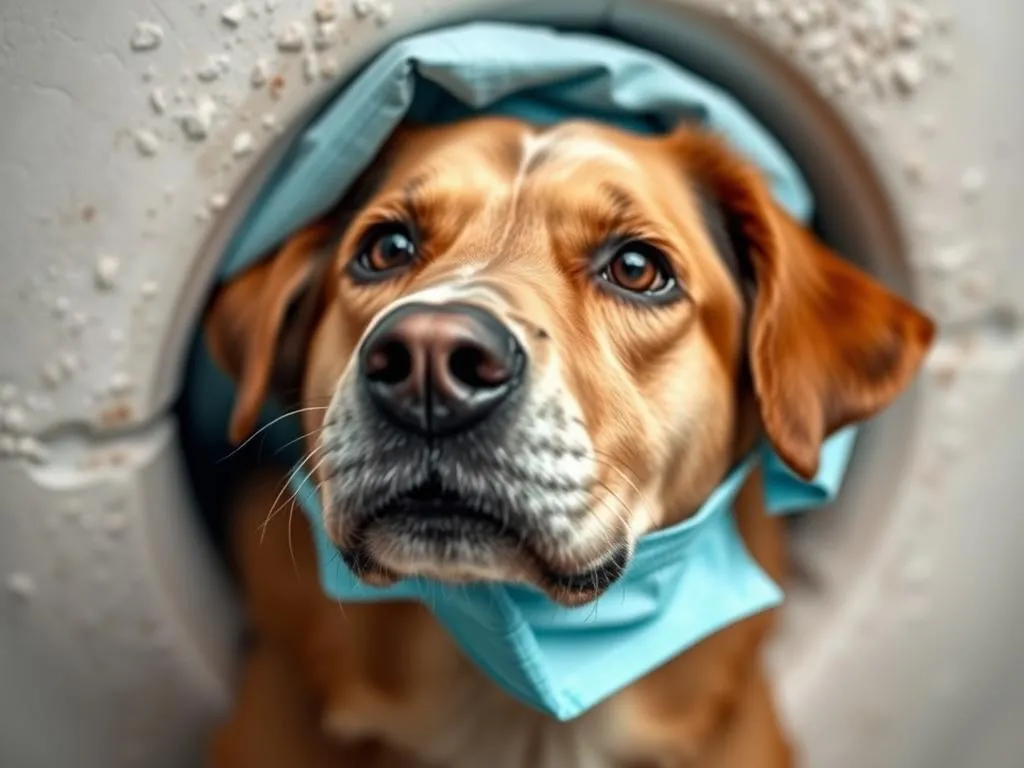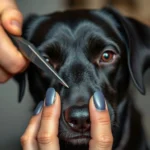
Introduction
Maintaining your dog’s health is crucial to ensuring a long, happy life for your furry friend. Dog health care encompasses a variety of practices, from routine check-ups to preventive measures against common health issues. Just like humans, dogs can suffer from a range of ailments, and being proactive about their health can save you from heartache and costly treatments later on.
Overview of Dog Health Care
Preventive care is the cornerstone of dog health care. Regular veterinary visits can help catch potential health issues before they escalate. Common health problems in dogs include obesity, skin conditions, and dental issues. Among these, dental health is often overlooked, yet it plays a vital role in your dog’s overall well-being.
Focus on Dental Health
Dental care is essential for dogs, as poor oral hygiene can lead to serious health problems. One significant concern is dog cavities, which can adversely affect your dog’s health. Cavities can lead to pain, infections, and even systemic health issues if not addressed promptly.
Understanding Dog Cavities
What Are Dog Cavities?
Dog cavities, similar to those in humans, are areas of decay that develop on a dog’s teeth. They occur when the enamel of the tooth is damaged, often due to the presence of bacteria and plaque. This decay can lead to pain and other dental issues if not treated. The primary causes of cavities include:
- Diet: High-sugar or starchy foods can contribute to plaque buildup.
- Dental Hygiene: Inadequate brushing or dental care can lead to cavities.
- Genetics: Some breeds are more prone to dental issues than others.
Symptoms of Dog Cavities
Recognizing the symptoms of dog cavities is essential for timely intervention. Here are some signs to look out for:
- Bad breath (halitosis): A common indicator of dental issues.
- Pain while eating: Difficulty chewing or a reluctance to eat can signal cavities.
- Swelling or redness in the gums: Inflammation can indicate gum disease or cavities.
- Changes in behavior: If your dog is less playful or avoids chewing, it could be due to dental pain.
Risks of Untreated Cavities
Neglecting dental problems can lead to severe complications. Untreated cavities can result in:
- Abscesses: Infections that develop around the tooth root.
- Systemic infections: Bacteria can enter the bloodstream, affecting organs such as the heart and kidneys.
- Reduced quality of life: Chronic pain can affect your dog’s behavior and overall happiness.
Dog Cavity Treatment Options
Professional Dental Cleanings
Regular dental cleanings are vital for maintaining your dog’s oral health. They not only help remove plaque and tartar but also allow your veterinarian to identify any early signs of cavities. During a dental cleaning appointment, you can expect:
- A thorough examination of your dog’s mouth.
- Scaling to remove plaque and tartar.
- Polishing of the teeth to prevent future buildup.
Cavity Treatment Procedures
If cavities are found, several treatment options are available:
- Fillings: Small cavities can often be treated with dental fillings.
- Extractions: In severe cases, the affected tooth may need to be extracted.
Discussion of Anesthesia and Safety Considerations
Most dental procedures require anesthesia to ensure your dog is comfortable and pain-free. While anesthesia carries some risk, veterinary professionals take necessary precautions to ensure your dog’s safety during procedures.
Dog Cavity Treatment Cost
Breakdown of Treatment Costs
Understanding the dog cavity treatment cost is essential for proper budgeting. Here’s a breakdown of average costs:
- Professional dental cleanings: $300-$700
- Cavity treatments (fillings): $100-$500 per tooth
- Extractions: $150-$800 per tooth, depending on complexity
- Anesthesia charges: $50-$200, depending on the dog’s weight and the procedure’s duration
Factors Influencing Treatment Costs
Several factors can influence the overall cost of dental treatments:
- Geographic location: Urban areas may have higher veterinary fees compared to rural locations.
- Clinic reputation: Well-established clinics may charge more for their services.
- Severity of the dental issue: More complex cases require additional time and resources, increasing costs.
- Additional treatments needed: Follow-up medications or treatments can add to the overall expense.
Insurance and Financing Options
Pet insurance can provide coverage for dental care, including cavity treatments. Be sure to review your policy’s specifics regarding dental coverage, as some plans may have exclusions. Many veterinary clinics also offer financing options to help manage costs, making it easier to afford necessary treatments.
Preventive Measures for Dog Dental Health
Regular Vet Visits
Scheduling regular veterinary visits is crucial for your dog’s dental health. Most veterinarians recommend dental check-ups at least once a year. Early detection and treatment of cavities can save your dog from pain and costly procedures later.
At-Home Dental Care
Establishing a daily dental care routine is vital. Here are tips for effective at-home care:
- Brushing: Aim to brush your dog’s teeth daily. Use toothpaste specifically designed for dogs, as human toothpaste can be harmful.
- Dental chews: These can help reduce plaque and tartar buildup while satisfying your dog’s chewing instincts.
- Dental rinses: Consider using veterinary-approved rinses to help control bacteria in your dog’s mouth.
Diet and Nutrition
A balanced diet can promote dental health. Here are some tips:
- Foods that promote dental health: Look for high-quality kibble designed to reduce plaque buildup.
- Avoid harmful foods: Steer clear of sugary treats that can lead to cavities.
Conclusion
In summary, maintaining your dog’s dental health is a critical aspect of dog health care. Regular veterinary visits, at-home dental routines, and a balanced diet are essential for preventing cavities and other dental issues. Understanding the dog cavity treatment cost can help you budget for necessary treatments, ensuring your furry friend stays healthy and happy.
Taking proactive steps today can lead to better health outcomes for your dog in the future. By prioritizing dental care, you can help your dog live a longer, healthier life.









